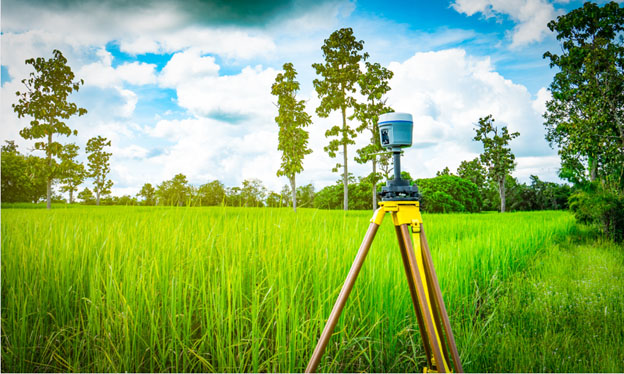Important Things You Should Know About Land Surveys
 A land survey is an essential tool that is used to determine the exact boundaries of a piece of land or property. It is often required when buying, selling, or dividing land, and is also important for resolving property line disputes.
A land survey is an essential tool that is used to determine the exact boundaries of a piece of land or property. It is often required when buying, selling, or dividing land, and is also important for resolving property line disputes.
Process: The process of land surveying typically involves a licensed surveyor visiting the property to take precise measurements and create a detailed map or plan of the land. This may include identifying any physical features of the property, such as trees, buildings, or natural landmarks, as well as any easements or encroachments.
Types: There are several different types of land surveys, each with its own specific purpose. For example, a boundary survey is used to establish property lines, while a topographic survey is used to map the physical features of the land. Other types of surveys include ALTA/NSPS surveys, subdivision surveys, and construction surveys. It is important to select the appropriate type of survey based on the specific needs of your project or property.
Land Surveys Can Be Used For Insurance Purposes
Land surveys can be used for insurance purposes. A land survey can provide valuable information about the physical characteristics of a property, such as the location of buildings, trees, and other features. This information can be used by insurance companies to assess the risk of insuring the property and to determine appropriate coverage and premiums.
For example, if a property is located in a flood zone, a land survey can identify the exact location and elevation of the property, as well as any nearby bodies of water or drainage patterns. This information can be used by insurance companies to assess the risk of flooding and to determine appropriate flood insurance coverage.
Similarly, if a property is located in an area prone to wildfires, a land survey can identify the location of any vegetation, structures, or other features that may increase the risk of fire damage. This information can be used by insurance companies to assess the risk of fire and to determine appropriate coverage and premiums.
Does a fence help a land survey?
Yes, a fence can help a land survey by providing a physical marker of the property boundary. A land surveyor can use the fence to determine the location of the property line and ensure that the fence is placed within the boundaries of the property. This can be particularly useful in situations where the property line is not clearly defined or where there may be disputes over the location of the boundary.
It is important to note that a fence alone is not sufficient to establish the legal boundary of a property. In order to accurately determine the property line, a land surveyor will need to conduct a thorough survey that considers all available evidence, including property records, physical markers, and other relevant factors. Additionally, it is possible for a fence to be installed in the wrong location, either intentionally or accidentally, which can result in boundary disputes and other legal issues. Therefore, while a fence can be a useful tool in a land survey, it should not be relied on exclusively to determine the property boundary.
Overall, a land survey can provide valuable information for many purposes and can help property owners make informed decisions about insurance coverage and risk management.
 Flooding can happen in any location at any time. Even though many people associate floods with coastal properties, flooding can take place inland as well. That is why you always need to take a look at the map to figure out whether your property is located in a flood zone. There are some situations where your lender might require you to purchase flood insurance. What do you need to know?
Flooding can happen in any location at any time. Even though many people associate floods with coastal properties, flooding can take place inland as well. That is why you always need to take a look at the map to figure out whether your property is located in a flood zone. There are some situations where your lender might require you to purchase flood insurance. What do you need to know? When you are going through the process of looking for a new home, you are probably focused on the sticker price of that home. Even though it is important to think about your down payment, your monthly mortgage payment, and the total amount of the loan, there are other expenses that you might need to cover as well. If you do not put down enough money, there is a chance that the lender could ask you to pay for something called private mortgage insurance. What is private mortgage insurance and how much do you have to pay? There are several important points that you should keep in mind.
When you are going through the process of looking for a new home, you are probably focused on the sticker price of that home. Even though it is important to think about your down payment, your monthly mortgage payment, and the total amount of the loan, there are other expenses that you might need to cover as well. If you do not put down enough money, there is a chance that the lender could ask you to pay for something called private mortgage insurance. What is private mortgage insurance and how much do you have to pay? There are several important points that you should keep in mind.